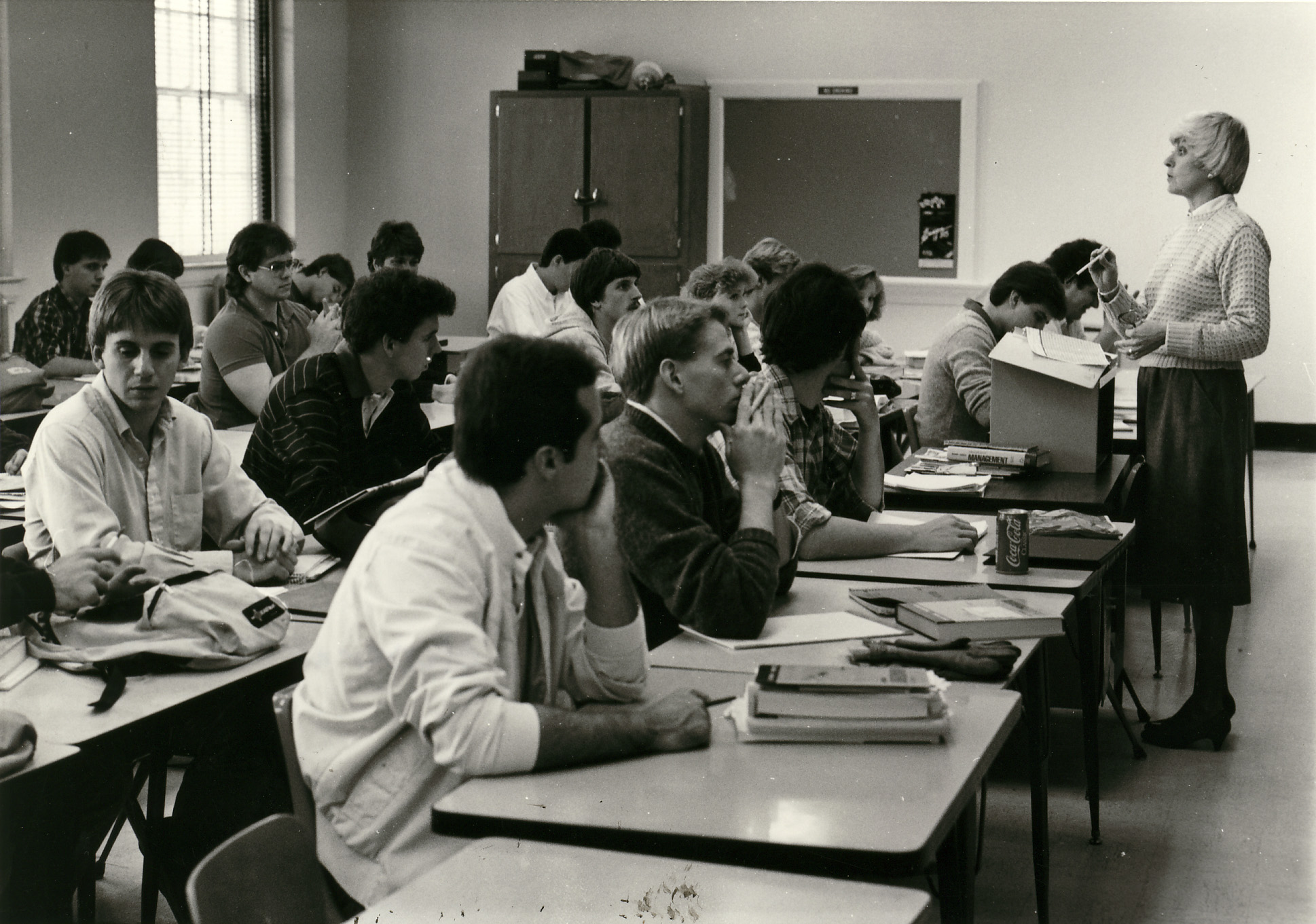How the groundbreaking Core Curriculum of 1994 shaped the future of experiential learning at Elon
Thirty years ago, Elon University set out to redesign its entire curriculum, a decision that would reshape its educational landscape and redefine its approach to learning.
In his opening of school remarks on Aug. 18, 1994, then- President Fred Young stood before the Elon community, acknowledging the countless hours that faculty and staff had invested in this effort.
“You have successfully completed a monumental task by revising the entire curriculum,” Young said, recognizing the collective effort in rethinking what was taught across 700 courses and how it was delivered. “You have created an exciting curriculum, and every area of the college is prepared to support it.”
This change marked the beginning of a transformative era that would elevate engaged and experiential learning at Elon to new heights.
Today, Elon students continue to engage in hands-on learning, developing critical thinking, problem-solving and collaborative skills that prepare them for the world beyond the classroom.
The new Core Curriculum was more than just an academic shift; it revolutionized how students were educated and prepared for their futures. Transitioning from a three-credit-hour system to a four-credit-hour structure gave faculty more flexibility to infuse active learning techniques into their classes. Gone were the days of purely lecture-based learning; instead, students were encouraged to engage in discussions, group work, simulations, case studies and even field experiences beyond the traditional classroom setting.
Key initiatives like the Experiential Learning Requirement and the launch of Elon 101 (now Elon 1010) brought these educational values to life, aiming to develop students who were not only knowledgeable but confident in applying their knowledge in real-world scenarios.
Alongside academic reforms, the university introduced the Elon Experiences, co-curricular opportunities that reflected Elon’s long-held values and bolstered student learning and personal development. The original Elon Experiences included study abroad, service, internships and leadership, with undergraduate research later added as a fifth experience. The university also created an experiential learning transcript so students could show prospective employers and graduate programs the full breadth of their Elon education, not just their academic record.
Looking back, it’s clear that the decisions made in 1994 laid the foundation for an educational environment centered on relationships and personal growth. This transformational shift didn’t just alter the curriculum; it redefined Elon’s identity as a place where students are encouraged to explore their passions, articulate their values and step confidently into leadership roles.
Today, Elon students continue to engage in hands-on learning, developing critical thinking, problem-solving and collaborative skills that prepare them for the world beyond the classroom.



